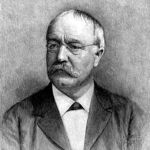At noon, Chairman Vargas and other members of the Philippine Executive Commission came over to the official residence of General Tanaka Seiichi, O. C., to offer their New Year’s greetings. General Tanaka responded, Takeuchi acting as his official interpreter for the occasion. After the formal exchange of messages a New Year’s reception was given to the party by the commander. I sat at the general’s table. Mr. Murata sat at the same table.
In the afternoon, about 1430 hours, Royama, Suekawa, Oshima, Sugimura, and myself called on Mr. Murata at hiscresidence to offer our greetings. A general discussion followed on the world situation.
- Murata said that the warm and friendly atmosphere that prevailed among Filipino and Japanese guests at the commander’s reception was quite unprecedented, so much so that, but for the language barrier, the gathering could har been of Japanese only. Murata observed that during the early days of contact Filipino-Japanese relations were off strictly formal nature, and it was plain enough that Vargas was cooperating with the Japanese only for the sake of peace and tranquility for his peopiane. Chairman Vargas never us the word “loyalty” in his greetings to the Japanese, while
the Japanese, for their part, were always critical and scrutinizing in their attitude toward the Filipinos.
2. Rōyama said that the time is coming when Japan must make clear its own world policy. Suekawa agreed and said that, while Japan could still exercise a restraining influence over Germany, she should be investigating ways and means to maneuver somehow Germany and Russia to come to a set- tlement. Royama countered by expressing pessimism over such a move at this late hour. Royama went on to say that when we concluded the Axis alliance he was opposed to it but that, if it had to be concluded, we should not be satisfied with a military agreement alone but should enter into an agreement on world policy as well.
When we say that we should make a declaration on world policy, the question of what to do with the Chinese situation constitutes the kernel of such policy. Should we come to a genuine settlement with China, there would be no room left for maneuver or hindrance by the USA or Great Britain in Eastern Asia. But, sad to say we Japanese do not possess a concrete program for coming to a compromise settlement with China nor the political power to bring it about. In Japan we really did not have an adequate understanding of the Manchurian crisis; we took only a superficial view of the May 15, 1932 affair, or the February 26, 1936 episode. The military had a philosophy – a simple one, perhaps – as well as the power and determination to pursue it along a straight line. Our military men appear by now to have exhausted their power and resources: they are fatigued by continuous fighting all these years. Our politicians — well, their power has been tested and found wanting. Up to now, some hopes have been entertained in our bureaucracy as a depository of Japanese brains. Our bureaucrats have demonstrated, on occasion, their leadership in combination with the military, but they too seem to have already shown the limits of their wisdom and power, and hence are now exhausted. If the military and bureaucracy have been tried and found wanting, and things are not going as desired, then where do we find leadership for future Japan? Here is the big question. We must now be training our followers and heirs to avoid confusion when the war comes to an end. While we are prosecuting the war we must be working on; postwar policy and be organizing political power to bring it into execution in peace time. Wherein do we find these things.
3. Sugimura countered Royama’s observations by saying that. granting diplomacy and world policy to be essential, we should first be agreed on the limits of our demands; we should be working out a program to end the war, or a pro. gram which we should present when the war terminates in a state with neither side victorious. Rōyama agreed with Sugimura in the suggestion that a modern war is likely to end in a state where there is no clear victor or loser.
